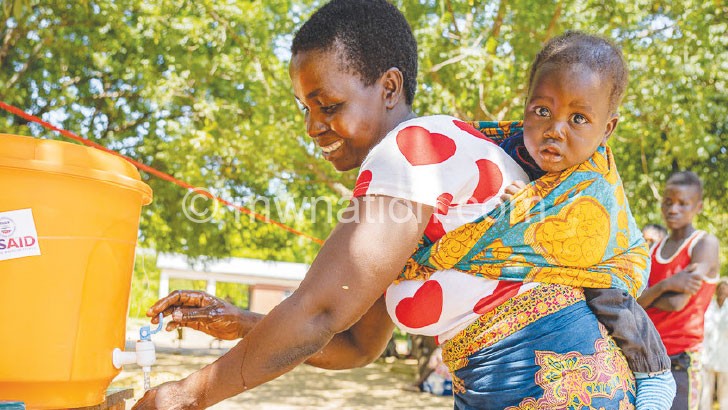Covid-19 wreaked havoc
The year 2020 started like any other year, with glitz, glamour and fireworks. A lot of people had plans and high expectations for the year, little did they know Covid-19 would turn almost everything upside down.
On March 20 2020, before Malawi had registered a case, government announced various measures to prevent the spread of the virus, including the indefinite closure of all schools by March 23. National examinations were postponed and many companies allowed their employees to work from home.
Malawi reported its first three Covid-19 cases on April 2, they were all from one household in Lilongwe’s Area 9.
“One of the patients is a 63- year-old who had recently travelled to India. The other two are her relation and domestic worker,” announced then president Peter Mutharika in a special address to the nation.

On April 7, Malawi reported its first Covid-19 death, a 51-year-old Malawian woman of Indian descent who had just returned from the United Kingdom and was the fifth to test positive for Covid-19.
Covid-19 cases continued to escalate, worsened partly by the June 23 Fresh Presidential Election campaign during which some politicians told their followers that Covid-19 did not exist. Thousands of Malawians ignored preventive measures and social distancing rules to attend political rallies.
Any attempt by the then governing Democratic Progressive Party (DPP) to put in place strict control measures was taken as an excuse to avoid the election.
An attempt by government to institute a 21-day national lockdown was blocked by a court order. Some cited social issues such as poverty as one of the reasons Malawi could not survive a lockdown.
By the time the nation went to the polls on June 23, Malawi had registered 848 confirmed cases and 11 Covid-19 deaths.
The country saw a spike in Covid-19 cases by over 40 percent immediately after the election with prominent figures, including politicians, government officials, civil servants and healthcare workers testing positive and some dying from the pandemic.
Among prominent figures who succumbed to Covid-19 were Karonga Central member of Parliament Cornelius Mwalwanda, who died on July 16, Chitipa district commissioner Humphrey Gondwe, who died on July 18 and Senior Chief M’bwana of Nkhata Bay.
By July 22, barely a month after the election, the number of confirmed cases had shot to 3 302 with 76 deaths. The country had recorded 153 new cases and five new deaths on that particular day.
Returning Malawians, in particular, were blamed for the spike in Covid-19 cases. As of July 12, over 1 900 people arrived in the country from South Africa.
A mathematical modelling of the pandemic in Malawi predicted that over 16 million Malawians would be infected with the coronavirus in a year and that about 483 000 would require hospitalisation, of which 85 000 would need critical care. The model predicted that if no proper measures were followed to curb the spread of the virus, 50 000 Malawians could die.
However, contrary to the projections, Malawi started seeing a decline in both new cases and deaths by August.
From a total of 1 065 active cases on October 3, the total caseload dropped to just 45 as of December 7. Over 5 000 people had recovered, while the death toll stood at 185.
New confirmed cases ranged between one and four per day. Sometimes days would pass without a new infection recorded.
However, the tables turned in December as the number of Covid-19 cases started to rise again.
Presidential Task Force on Covid-19 co-chairperson Dr John Phuka said three risk factors may have contributed to the increase.
Said Phuka: “In neigbouring countries, numbers continue to increase and we engage with these neigbouring countries often. Again, many people and institutions have relaxed on preventive measures and the change in temperature also triggers multiplication of organisms.”
A statement by the Presidential Task Force on the daily Covid-19 update showed that as of December 30, the country has recorded 6 471 cases, including 189 deaths.





